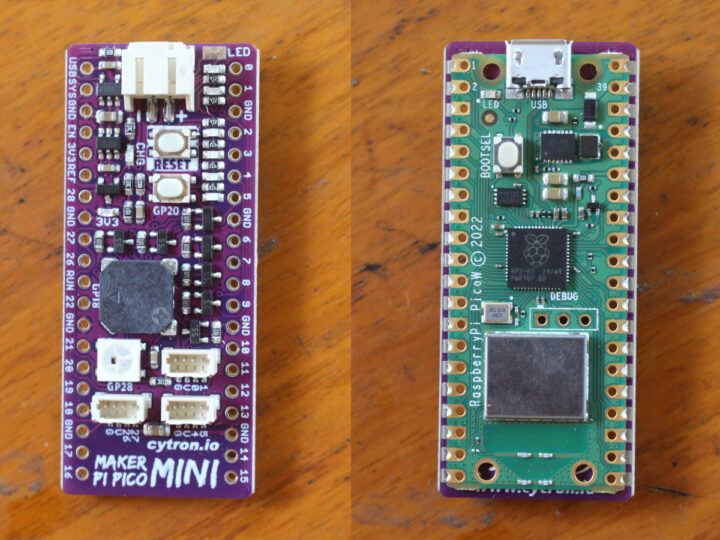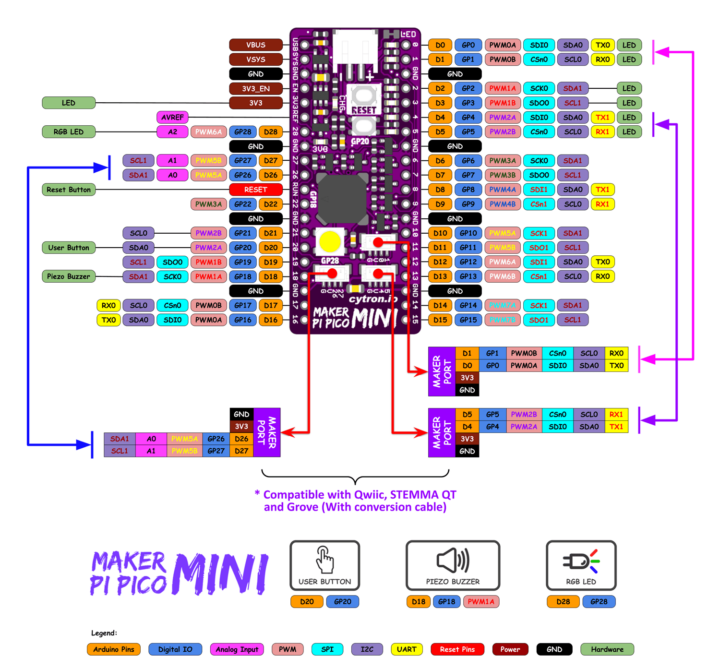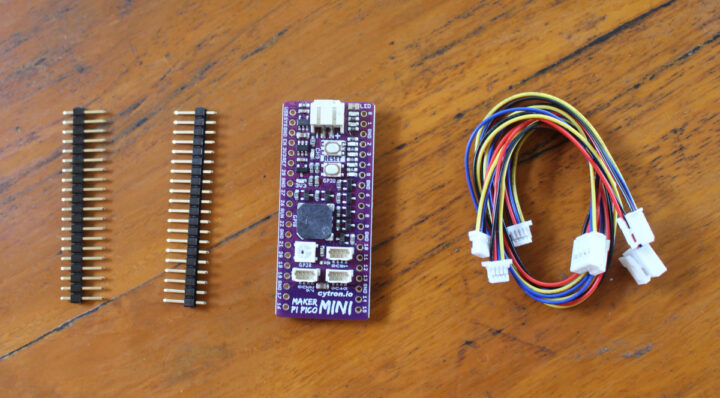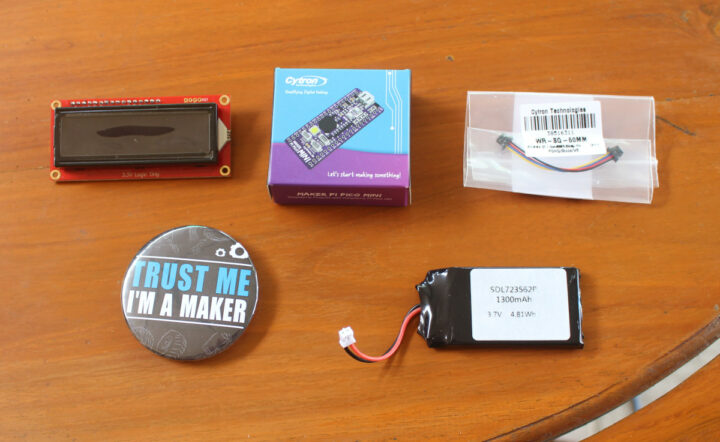Cytron’s Maker Pi Pico Mini is an add-on board for the Raspberry Pi Pico and the latest Raspberry Pi Pico W with a battery port, GPIO status LEDs, a WS2812B Neopixel RGB LED, passive piezo buzzer, user and reset button, as well as “Maker” ports for expansion.
It comes with most of the features found in the company’s Maker Pi Pico board, but in a much more compact form factor, since the add-on board is only slightly larger than the Raspberry Pi Pico to allow for soldering using the castellated holes.

Maker Pi Pico Mini specifications:
- Fitted with Raspberry Pi Pico / Pico W
- LEDs – 6x Status indicator LEDs for GPIOs, 1x RGB LED (WS2812B Neopixel)
- Audio – 1x Passive piezo buzzer (to play musical tones or melody)
- Buttons – Reset and user buttons
- Expansion
- 3x Maker ports compatible with Qwiic and STEMMA QT, as well as Grove modules via a conversion cable
- 2x 20-pin 2.54mm pitch header on RPi Pico board with 26x GPIOs, 3x ADC, 2x UART, 2x I2C, 2x SPI, 16x PWM, 2x programmable I/O (PIO) blocks
- Power Supply
- 5V via the micro USB port on the Raspberry Pi Pico (W) board
- 2-pin connector for single-cell LiPo connector with overcharge / over-discharge protection circuit, rechargeable via USB.
- Dimensions – 53.85 x 23.12 mm

The board is offered in standalone (MAKER-PI-PICO-MINI-NB) for people who want to solder their own Raspberry Pi board, as well as fitted with Raspberry Pi Pico (MAKER-PI-PICO-MINI) or Raspberry Pi Pico W (MAKER-PI-PICO-MINI-W) and CircuitPython pre-loaded.
The board also supports Arduino and MicroPython if CircuitPython is not your thing… Cytron sent us the MAKER-PI-PICO-MINI-W model which ships with three Grove to JST-SH (Qwiic / STEMMA QT) cables, and two 20-pin make headers.
But since we wanted to make a project, the company also sent a battery and display, and we’ve given the kit to a local maker school who will write a guide showing how to use sensors, as well as display sensor data on the LCD and in the Blynk IoT platform. [Update: Finally the tutorial ended up being an Internet-connected weather station programmed with the Arduino IDE]
Cytron sells the Maker Pi Pico Mini on their online store for $8.90 to $14.40 depending on options. You’ll also find resources to get started there.

Jean-Luc started CNX Software in 2010 as a part-time endeavor, before quitting his job as a software engineering manager, and starting to write daily news, and reviews full time later in 2011.
Support CNX Software! Donate via cryptocurrencies, become a Patron on Patreon, or purchase goods on Amazon or Aliexpress






